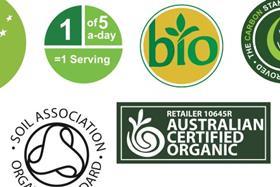
Some of the key issues surrounding sustainability were debated in Amsterdam last week at the Sustainable Foods Summit, including water scarcity, waste, climate change, technological innovation, rising populations and evolving consumer habits.
Ewald Rametsteiner of the UN's Food and Agriculture Organisation set the tone of the conference, organised by UK-based Organic Monitor, with a lengthy list of the group's priorities. These included food security, improving the provision of goods in a sustainable manner, fighting poverty, making food systems more sustainable, and increasing the resilience of livelihoods to withstand disasters.
Antonio Compagnoni of the Institute for Ethical and Environmental Certification (ICEA) stressed the importance of family farming.'This year is the UN year of family farming,' he said. 'We need to stop the exodus from the countryside to the city, and increase pride in the occupation of agriculture. Family farming is more resilient and more sustainable than the monocultures of the big corporations.'
The ICEA is involved in implementing the Samcert programme, a 3-year grant from the International Fund for Agricultural Development (IFAD), the aim being to help rural producers to adopt sustainable certification to improve their economic, environmental and social situation.
Compagnoni also spoke of the exploitation of workers in the sector, not just in the developing world, but also in Europe.'We are working on a local fair trade system, as working conditions are not so great in many developed countries either,' he said, before referring to the plight of migrant tomato pickers in southern Italy.
Helene Regnell, head of corporate social responsibility at Danish retailer Dansk, said that CSR was a big driver of food sales with consumers in Denmark, but that there was increasing mistrust of messages and labels on products.
'Greenwashing is one cause of this mistrust,' she explained, 'and the much higher prices for responsible products also put off shoppers.'
From the audience, Christine Priessner of Dutch organisation Soil & More suggested that the price of food needed to include externalities, including a product's impact on soil, water and the workforce. If such costs were taken into account, it is argued, responsible products would be closer in price to, if not cheaper than, conventionally grown items.
The summit equally provided a platform for companies to air their technological innovations, including Selerant's product lifecycle software, Institut Noteo's mobile application, which rates products in France according to their health, environmental, social and price performance, and Chainfood's software platform, Chainpoint, which aims to improve collaboration and transparency in the chain and deliver quality and sustainability benefits while reducing risk and cost.
'Consumers want to know the story behind a product,' said Chainfood's Charles Van Den Heuvel. 'However, all the links in the supply chain currently organise their own data vertically. It would be more efficient if we could look at the whole chain using a virtual cloud, and we can now do this with new technologies. This is a good way of regaining consumer trust.'
On the question of who was ultimately responsible for ensuring a sustainable future for the planet, Dansk's Helene Regnell suggested that all of us were. 'Every morning when I look in the mirror, I see who's responsible,' she said.
Harry Aiking of VU University concurred with the sentiment and at the same time stressed the importance of immediate action. 'Governments, industry, consumers - yes, everyone is responsible,' he said. 'But do it quickly.'



